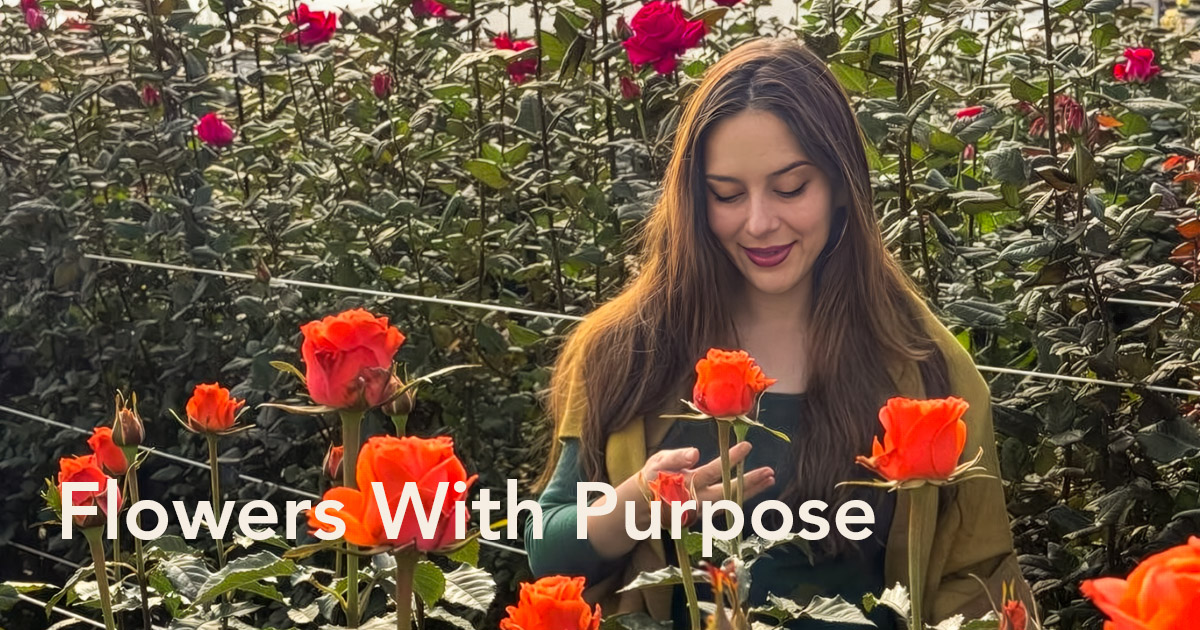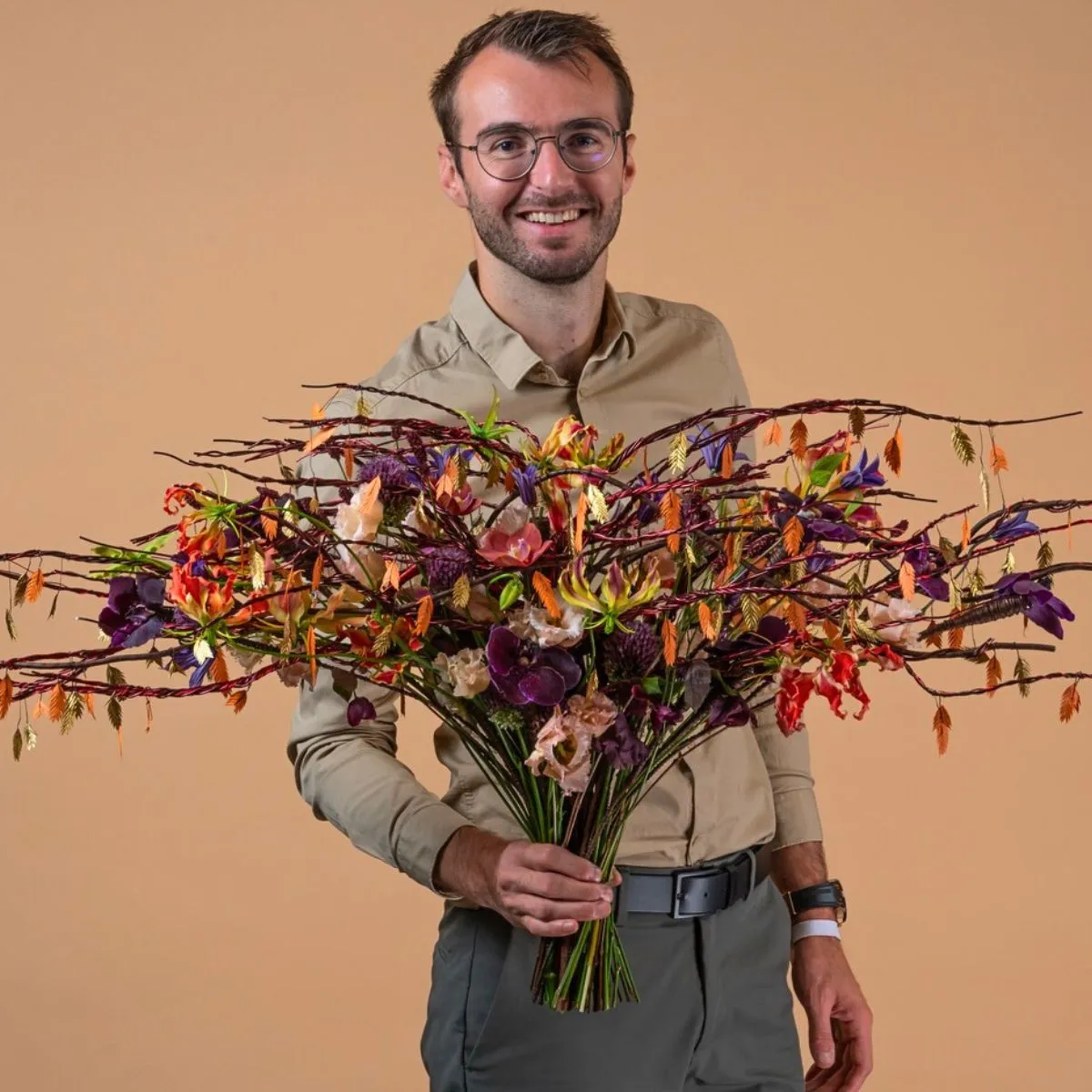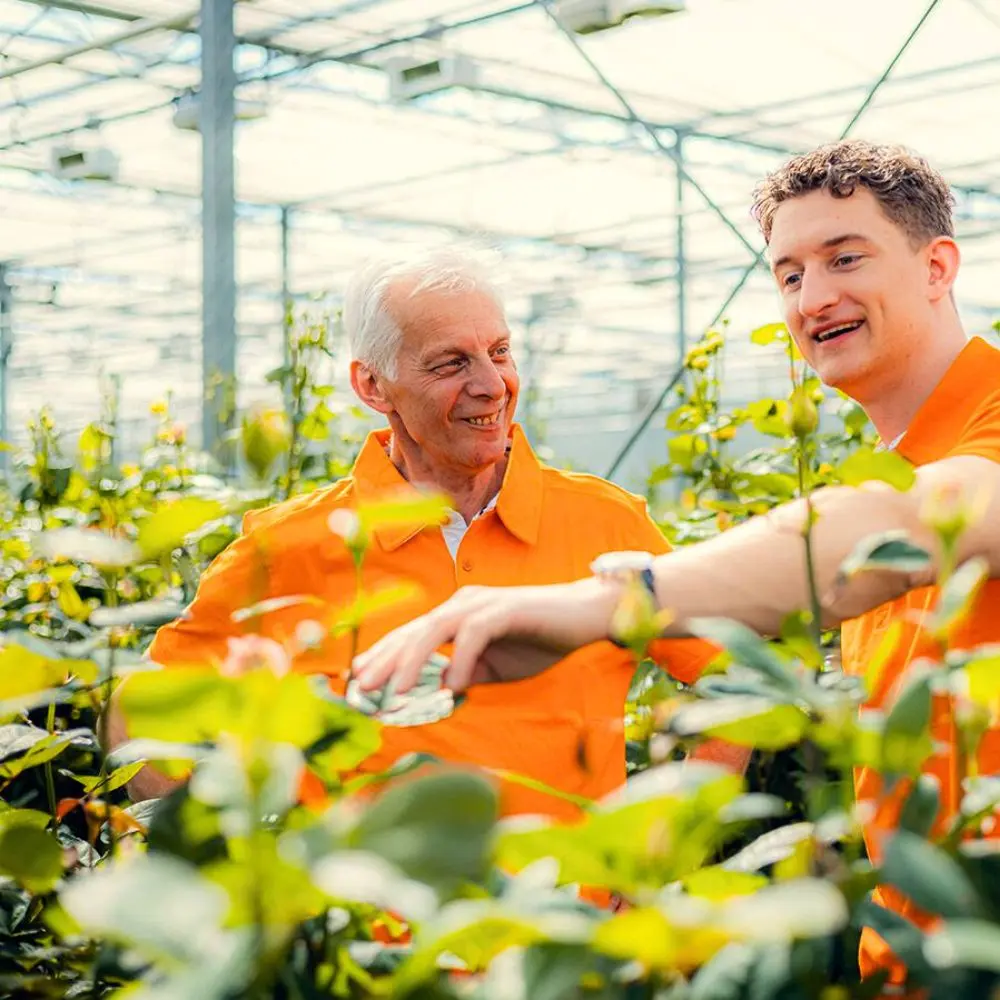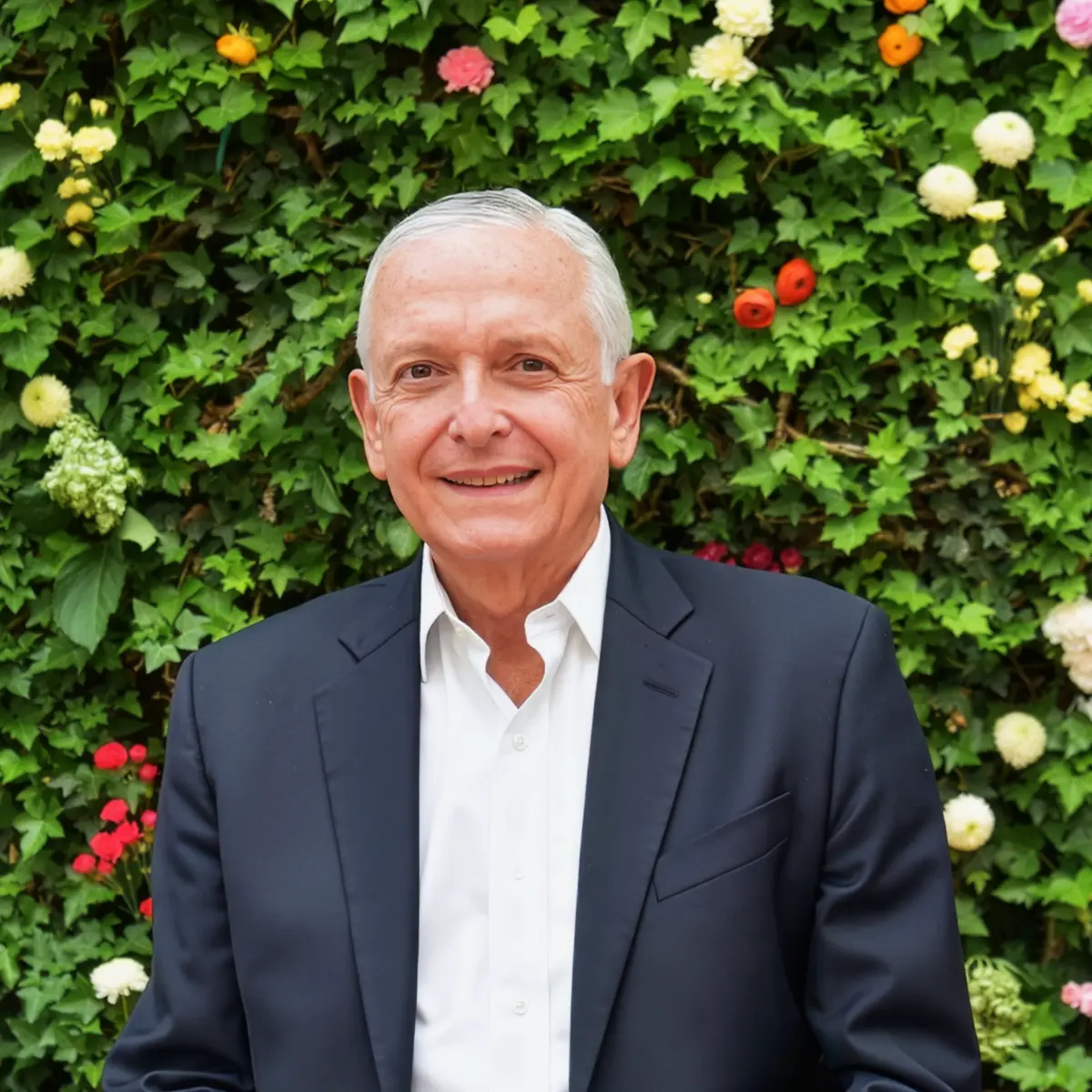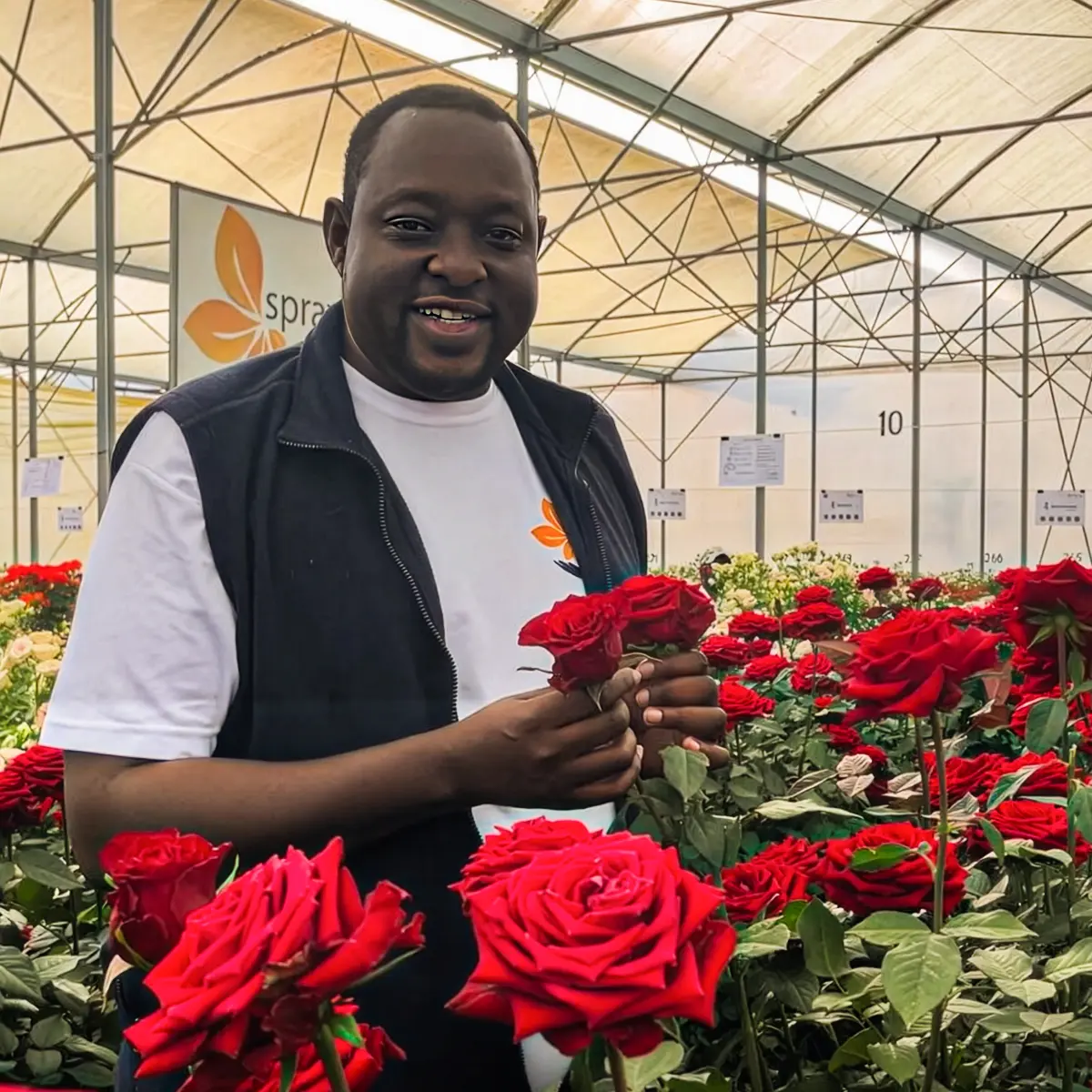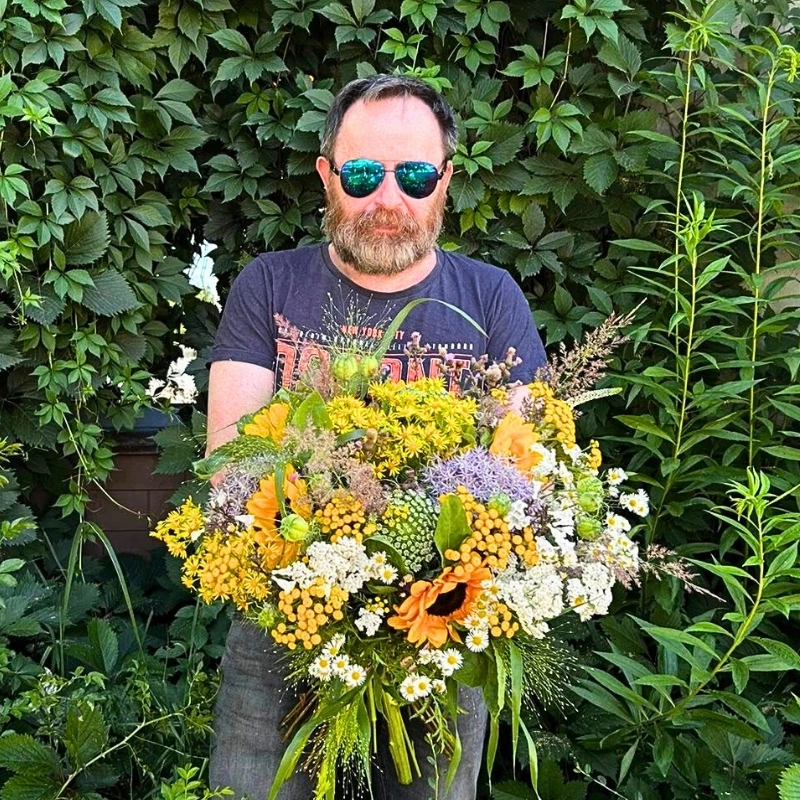When you encounter María Daniela España Gutiérrez, it becomes clear that her narrative encompasses much more than accolades or credentials—it revolves around her deep convictions. From her initial studies in agro-industrial engineering in Colombia to pursuing advanced degrees throughout Latin America and the United States, Daniela has maintained a consistent theme: the belief that agriculture can be both regenerative and inclusive. Currently, as the Director of Sustainability at Asocolflores and Florverde Sustainable Flowers, she applies this vision to create tangible impact, ensuring that each bloom is backed by dignity, resilience, and responsibility. For her, leadership serves not as a means to gain recognition but as a commitment to serving others—quantified by the positive impact made on individuals, communities, and ecosystems.
What makes Daniela truly engaging is her ability to connect technical knowledge with human experience seamlessly. She discusses carbon calculators and global standards with the same enthusiasm she expresses when recounting the happiness of a farmworker who reports an improvement in their life due to safer, fairer working conditions. She exemplifies integrity and grounded optimism, viewing challenges such as climate change not as obstacles but as opportunities for innovation. In this week’s 10 questions, she shares her story, philosophies, and the passion she carries deeply for the floral industry. Enjoy this week’s read below.
Question 1
For those who don’t know you, who are you, and what do you do?
"My name is María Daniela España Gutiérrez, and I am an Agro Industrial Engineer from Colombia with a lifelong commitment to building bridges between science, sustainability, and people. My academic path took me from the University of Nariño and the University of Atlántico to advanced studies abroad: a Master of Science in Plant Biotechnology in Brazil, a Master’s in Food Safety Management in Costa Rica, and an Executive MBA in the United States focused on the triple bottom line of environmental, social, and economic sustainability. These studies were not simply academic milestones; they were opportunities to deepen my conviction that agriculture must become a force for regeneration and inclusion. I began my career in science at Embrapa Agroenergia in Brazil, conducting research in genomics and biotechnology to add value to agricultural chains and replace harmful practices with bio-based solutions. Later, I assumed leadership roles in food and agribusiness companies such as Alpina and Bio D S.A., where I guided strategies in environmental management, food safety, and sustainable business development. From these experiences, I learned that sustainability is not an expense or an accessory; it is the foundation of competitiveness and trust.

Today, I serve as Director of Sustainability at Asocolflores and Director of Florverde Sustainable Flowers (FSF). FSF is an international certification with nearly three decades of history, created specifically for floriculture, and under my leadership, it has expanded by more than 50 percent in certified hectares in just 18 months, reaching Colombia, Ecuador, and Central America. It is now a recognized benchmark in sustainable floriculture by initiatives such as FSI 2025 and SSCI. I also represent Latin American flower producers on the Board of the Floriculture Sustainability Initiative in the Netherlands, contributing to global standards and ensuring our region’s voice is heard.
What truly defines me, however, is not titles or recognitions, although I am honored to have received the Orden Policarpa Salavarrieta from the Colombian Congress, but a higher purpose. I believe leadership is service, and that the measure of success lies in the positive footprint we leave on people and the planet. The testimonies I have been fortunate to receive from colleagues and organizations describe me as a leader who inspires through integrity, collaboration, and vision. For me, that is the greatest recognition: knowing that my work can open opportunities for women in rural communities, strengthen resilience in families, and restore ecosystems through concrete, measurable action. Behind every flower certified by FSF, there is much more than beauty. Families are working with dignity, ecosystems are being regenerated, and consumers can trust that their choices contribute to a better world. That is my mission and my passion: to ensure that floriculture is not only admired for its beauty but respected for its responsibility and impact."
Question 2
What is so special about your job?
"What makes my job truly special is the opportunity to serve others and create a positive impact. Floriculture is an industry that already brings beauty and joy to people’s lives, but through sustainability, we can go further—we can ensure that every flower also carries dignity for workers, opportunities for families, and protection for ecosystems.
For me, leadership is not about recognition or titles; it is about service. Through Florverde Sustainable Flowers, I have the privilege of helping growers improve their practices, access new markets, and believe in their own capacity to meet world-class standards. Seeing small producers achieve certification, or hearing a worker say that their life is better because of safer and fairer conditions, is the greatest reward of all. This is what makes my work so meaningful: knowing that behind every certified flower there is a story of well-being, inclusion, and responsibility. My role allows me to serve as a bridge between communities, businesses, and consumers, and to show that sustainability is not just a concept—it is a way of caring for people and the planet with humility and integrity."

Question 3
Are there any specific challenges or obstacles you’ve faced at work, and how did you overcome them?
"One of the greatest challenges has been preparing the floriculture sector to navigate two accelerating forces: climate change and constantly evolving regulations and buyer requirements. Climate change directly affects water availability, energy efficiency, and crop resilience, demanding that producers adopt regenerative practices and continuous innovation. At the same time, international markets increasingly require compliance with strict frameworks such as the EU Green Deal and demand full transparency and traceability. As a sustainability leader, I see these challenges not as obstacles but as opportunities to strengthen the industry. At FSF, we developed robust systems of measurement and third-party verification, enabling farms to monitor their environmental and social indicators in real time. This allows producers to adapt faster, reduce risks, and communicate measurable progress to global buyers.
In practice, this means turning uncertainty into resilience: water conservation plans, integrated pest management with bio-inputs, formal systems for labor welfare, and evidence-based reporting. By embracing continuous adaptation, floriculture is not only surviving these pressures but positioning itself as a global reference in sustainable agriculture."

Question 4
What are the threats in the industry, and if so, do you have any solutions for them?
"The floral industry is at a crossroads where several structural threats converge. Climate change is intensifying, bringing unpredictable weather patterns, water scarcity, and biodiversity loss that directly affect production. At the same time, regulations and customer expectations are becoming more demanding, with frameworks such as the EU Green Deal, CSRD, and stricter pesticide policies requiring producers to demonstrate traceability, transparency, and measurable impact. On top of that, consumers are increasingly skeptical of greenwashing and only trust data and credible certifications.
These dynamics could threaten competitiveness if not addressed strategically. But I believe they also represent an opportunity. At Florverde Sustainable Flowers (FSF), we require evidence-based sustainability, with farms reporting monthly indicators on water, energy, labor, and biodiversity. This transforms compliance into a management tool, helping farms anticipate risks, adapt quickly, and demonstrate real progress to global markets. The solution lies in moving from reactive to proactive: embedding climate adaptation into farm practices, investing in digital tools for traceability, and aligning with global frameworks ahead of time. By doing this, floriculture not only reduces risks but also positions itself as a leader in sustainable agriculture, proving that flowers can embody both beauty and responsibility."
Question 5
How has technology, such as e-commerce platforms or digital marketing, affected your industry? What strategies have you employed to stay competitive?
"Technology has become one of our strongest allies in bringing transparency, traceability, and accountability to floriculture. At Florverde Sustainable Flowers, we have been pioneers in using digital tools to measure, report, and verify sustainability performance. Since 2012 we have operated a carbon footprint calculator that now contains more than five million data points across the value chain. These audited results allow us to show tangible progress: over 52 percent of the water we use comes from rainfall, chemical pesticide use has been reduced by more than 60 percent thanks to bio-inputs, and water reservoirs are now biodiversity refuges for more than 158 bird species. These are not claims; they are facts verified by third parties and shared globally, including at the United Nations COP16.
The next step is the integration of the FloriPEFCR methodology, approved by the European Commission. This LCA-based standard allows us to calculate the environmental footprint of flowers and plants using 16 indicators comparably and credibly. Through our work with the Floriculture Sustainability Initiative (FSI) and allies such as Greenhouse Sustainability, Florverde will be among the pioneering standards—alongside MPS—to implement product-level footprint calculators. This innovation ensures that buyers and consumers worldwide can access science-based, verified data that prevents greenwashing and reinforces trust in sustainable floriculture. It is also essential to highlight that while technology strengthens transparency, it does not replace people. Colombian floriculture generates, on average, 16 formal jobs per hectare, more than 245,000 in total, 60 percent of them for women, many of whom are heads of household. Technology helps to protect their health and efficiency, but more importantly, it allows workers to move beyond purely operational tasks to contribute in areas such as data analysis, continuous improvement, and sustainability innovation. This shift enriches our organizational culture and ensures that sustainability is embedded at every level of the business.

For more than three decades, Colombian floriculture has understood that sustainability is not an add-on but the basis of our competitiveness and our license to operate. By combining digital innovation, AI, and robust auditing with social inclusion and environmental regeneration, we ensure that our flowers are not only admired for their beauty but respected worldwide for their impact."
Question 6
Who (in or outside the floral industry) is an inspiring example to you? And Why?
"I have been deeply inspired by Mr. Augusto Solano, President of Asocolflores. His leadership has shaped Colombian floriculture for decades, but what inspires me most is his example of integrity and service. Through initiatives such as “Cultivemos la Paz en Familia”, he promoted respect, dialogue, and peaceful conflict resolution, impacting more than 275 schools and nearly 60,000 students. He has also mentored countless professionals, myself included, showing us that floriculture is not just about exports—it is also about communities, peace, and opportunity.
His vision positioned sustainability as the foundation of competitiveness, helping Colombian floriculture gain global recognition. Working under his guidance taught me that success is not measured only by growth, but by the positive legacy we leave for people and for the planet."

Question 7
How do you handle stress or difficult moments in your life?
"In difficult moments, I always turn to God, my best friend and greatest source of strength. His support has guided me throughout my life, and I owe all my personal and professional achievements to Him. Knowing that He always shows me a way forward fills me with peace, hope, and resilience. Because of this faith, I rarely feel overwhelmed by stress—I trust that with patience, determination, and confidence in God, every challenge has a solution. I am also blessed to have the support of my parents and my brother, who inspire me and encourage me to keep moving forward. I have learned that asking for help with humility and maintaining strong, respectful relationships with others is essential to overcoming challenges.
To me, every difficulty carries a hidden lesson. Challenges make us stronger and wiser; they shape our character and help us grow as leaders and as human beings. That is why I face them with integrity, gratitude, and faith, knowing that even in adversity there is always an opportunity to learn, to improve, and to become better."

Question 8
What has been the best (floral or non-floral) news for you lately, or of the last year?
"The most exciting news for me has been the extraordinary growth of Florverde Sustainable Flowers (FSF) certification. In 2023, we had close to 4,000 hectares certified, and today we have surpassed 9,000 hectares. This expansion represents not only the trust of growers but also the recognition that sustainability is the foundation of competitiveness for floriculture. It demonstrates that farms of every size are embracing continuous improvement, transparency, and measurable impact.
But beyond the numbers, what fills me with the most joy is the inclusion of more than 22 small producers in Colombia and Ecuador who are now FSF certified. For many of them, achieving an international certification once seemed out of reach. Today, with technical support and strong commitment, they are preparing to export their flowers to Europe and fulfill their dreams. Helping them structure their operations, build a culture of sustainability, and open doors to international markets is one of the most rewarding experiences of my career.

Another milestone is the launch of our sustainability e-learning platform, which is making training accessible for farms of all sizes. By providing knowledge in areas such as resource efficiency, labor standards, and biodiversity protection, we are empowering teams to embed sustainability in their daily work and multiply impact across the value chain. As President Augusto Solano of Asocolflores has said, every grower, regardless of size, can be sustainable. Seeing this principle come to life—through growth in hectares, through education, and through inclusion of small-scale growers—is the best news for me. It shows that Colombian and Latin American floriculture is not just exporting flowers, but also exporting trust, inclusion, and sustainability to the world."
Question 9
Which is your favorite flower/plant, and why is it good for you?
"It is hard for me to choose, because I truly love all flowers equally. Each one carries its own beauty, meaning, and story. But if I had to highlight one, I would say the carnation. I find it fascinating due to its infinite range of colors and varieties, each one full of character and symbolism.
The carnation represents both tradition and innovation in Colombian floriculture. It is a flower that has conquered global markets, admired not only for its beauty and durability, but also for the creativity it allows through its diversity of shades and forms. To me, carnations are a reminder of the richness of our biodiversity and of the dedication of thousands of workers who make it possible for these flowers to reach people’s lives around the world."

Question 10
What are you doing this weekend?
"This weekend, I plan to spend time doing the things that truly bring me balance and joy. I love going trekking with my brother, exploring nature, camping, and walking through the mountains. Being outdoors allows me to breathe fresh air, reflect, watch the birds, admire the stars, and reconnect with the simplicity and beauty of life. These moments in nature are not only restorative, they also remind me why protecting ecosystems is such an essential part of my mission. I also enjoy cooking and sharing meals with my family. They are my greatest source of love, inspiration, and strength, and being with them fills me with gratitude. For me, weekends are a time to combine activity and reflection—moving my body in nature, reflecting on my purpose, and cherishing time with the people I love.
This balance gives me the energy and clarity to begin each new week with determination, knowing that my professional work is always rooted in what matters most: family, faith, and the beauty of life that flowers so perfectly symbolize."
All pictures courtesy of Daniela Espana.

